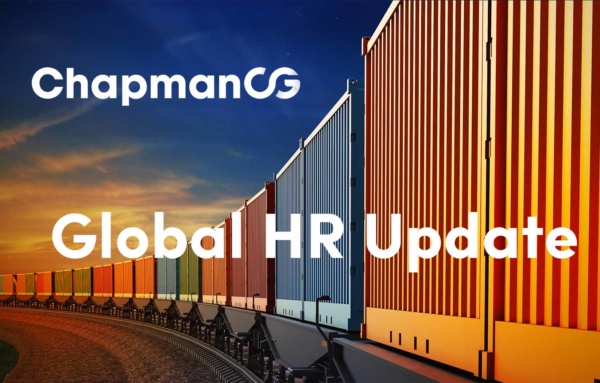How Can HR Professionals in Japan, Korea and Taiwan Aim for International Experience Overseas?
Japan, Korea and Taiwan are commonly seen as the more difficult markets in Asia Pacific from which to launch an International HR career. Within all three countries, there are far fewer regional HR career paths available, since most multinationals have selected other regional hubs for their Asia Pacific headquarters. So it’s harder to gain cross-border HR experience when starting HR careers in these countries. But this is not the only reason that HR talent from these markets is less transferable overseas.
In the case of Japan and Korea, both are often seen as being unique markets that have quite separate employment laws and societal norms from the rest of Asia (and indeed from each other). So, while top HR talent in these countries can be highly regarded, regional and global HR decision-makers are nervous about whether their HR skills can properly translate into the HR skills needed overseas.
In the case of Taiwan, there is a more obvious fit with international roles based in locations such as China, Hong Kong and Singapore, where there are closer cultural similarities to Taiwan. However, Taiwanese talent is more recently being overlooked for roles in these key locations because of the upsurge in talent emanating from Mainland China, as well as the strength of regional HR talent that can already be found ‘on the ground’ in Hong Kong and Singapore. So Taiwan is increasingly being seen as more of a talent ‘silo’, much in the same way as Japan and Korea, and we are seeing far fewer Taiwanese HR professionals being selected for overseas opportunities.
I find myself speaking on this subject more and more with the HR talent in these markets who are conscious of this problem, and who want to break the trend of being overlooked for key appointments overseas. So here is an overview of the process that I would follow:
1) Trying to make it happen in your current company: What can you do better?
2) If you’re still being overlooked, ask yourself: Are you in the right company?
3) Are you effectively using your own personal network of former co-workers overseas?
4) What else can you do to speed up the likelihood of an international HR career?
I will touch upon all four points in this brief overview.
1) Trying to Make it Happen in Your Current Company: What Can You Do Better?
One of the simple errors that HR pros can make is simply to expect regional overseas promotions to happen automatically. Sometimes, international opportunities can indeed ‘fall from the sky’, but these only happen in exceptional cases. In general, it’s not good enough to simply be in the right place at the time – on top of this, you need to have been clear and consistent with your communication with HR superiors and peers. Only in this way can the key HR decision-makers at the country, regional and perhaps even global level be sure to have your intentions in mind when planning future succession strategies and project assignments.
Beyond formal reporting lines, HR practitioners in Japan, Korea and Taiwan need to make a particular effort to create strong relationships with HR practitioners overseas on an on-going basis. Some HR leaders can feel too removed and isolated from where the ‘action’ is happening at the regional or global level, either because of the geographical distance between the HQ location, or because there’s a North Asia sub-regional reporting layer that can interfere with relationship-building on a wider scale. So it’s important to be a good networker internally. As much as we all want our companies to operate as a strict meritocracy, we also need to acknowledge that the strength of personal relationships will always play a key part in these decisions.
And finally, Japanese HR practitioners in particular, need to alter the perception that they can’t be ‘team players’. For example, when exceptions to Global HR rules need to be granted for Japan (or indeed Korea and Taiwan), these should be managed and communicated in a sensitive way. Regional and global HR colleagues need to know that you can put local HR factors into a global context, rather than just be that person who always needs to be treated as the ‘exception’ to the general rule.
2) If You’re Still Being Overlooked, Ask Yourself: Are You in the Right Company?
In some cases, it can be very clear that you’re not in the right company simply due to its corporate structure in Asia. I had a conversation just today where an HR Manager in Japan wanted a regional promotion, but his family has already made it clear that they would move to Singapore but never to Hong Kong, which is the location of this company’s regional headquarters. In other cases, there could be other less-obvious factors that may be impeding the chances of reaching your goal, such as the lack of a regional or global corporate mobility policy, the absence of any previous examples of international career movements in the company’s recent history, or even issues such as budget cuts.
There will come a time where you need to recognise that you could be investing your time and efforts more wisely in another organisation, where there is a greater chance that you can reach your goal of being posted overseas. You may need to spend the first two years in a new company continuing to perform well in a domestic role, since you will need to build your credibility in the organisation ‘from scratch’. But so long as you don’t lose sight of the key reason you joined this new company, you will have a better chance of influencing the desired outcome.
3) Are You Effectively Using Your Own Personal Network of Former Co-Workers Overseas?
When looking outside your current company for an international career move, it’s very unlikely that you will be able to move from your current company in Japan, Korea or Taiwan into a new company in another country altogether. Most companies will never take the risk that you can adapt into a new company and a new country at the same time.
There are, however, exceptions to this rule. The first exception is where you have a very particular skill-set which is very rare no matter where you are in the region. Examples of these skill-sets might be in regional Diversity & Inclusion, regional Employee Relations, or regional Executive Compensation. A company is much more likely to overlook the potential negatives in favour of these key skill-sets that are still uncommon across the Asia Pacific markets.
And the second exception is where you have a personal connection to someone who can vouch for you and your abilities to adapt. If a company is using a headhunting firm to find external talent, they are far less likely to be flexible on these factors, since they expect the headhunter to be more exact with the profile of talent they can introduce. However, if the introduction has come from an internal employee who has already worked closely with you in a past company, there’s a better chance that your internal supporter can help convince other decision-makers that you are a risk worth taking. So don’t lose touch with HR and business colleagues overseas, since they can continue to help you in this ever increasingly interconnected world.
4) What Else Can You Do to Speed Up the Likelihood of an International HR Career?
In many ways, there’s no difference for HR talent in Japan, Korea and Taiwan to successfully create international career paths than for HR talent anywhere else in Asia. It just requires people who have an enterprising character and a spirit of adventure. If you have these character traits, then you have already won half the battle.
Another key point is to start early. It’s great to have international HR experiences earlier in your career, so that you can expose yourself to different ways of thinking sooner rather than
later. This will help you later to understand which HR practices in your home country are better than you’ve seen overseas, and which of them are simply bad habits that are not necessary. It’s also easier to get these assignments when you are younger, cheaper, and unencumbered by family, since the cost/benefit calculations for a company becomes trickier when they need to account for larger expat packages.
And finally, if you have tried all the tips in the article above and you still have not managed to engineer an international HR career path, then there is still one thing you can do to take control of your own destiny. Save enough money to leave your job and to relocate to a new country by yourself. This is a high-risk strategy, and you need to plan for the eventuality that you might not be successful finding a job in a new location. However this show of willpower will often be very impressive to prospective decision-makers, and simply by being physically ‘in the market’ in this new country, you’re more likely to get picked up by someone and get your first lucky break. All it takes is one job, which might need to be more junior in status than the job you had in your country of origin, after which it’s up to you to perform well and create speedy upwards trajectory in the future.
 Andrea Merrigan
Andrea Merrigan Orelia Chan
Orelia Chan Stanislav Medvedev
Stanislav Medvedev Fleur Daniell
Fleur Daniell Finian Toh
Finian Toh Tim Rayner
Tim Rayner Nicola Hasling
Nicola Hasling Stefanie Cross-Wilson
Stefanie Cross-Wilson


